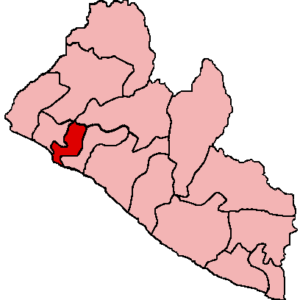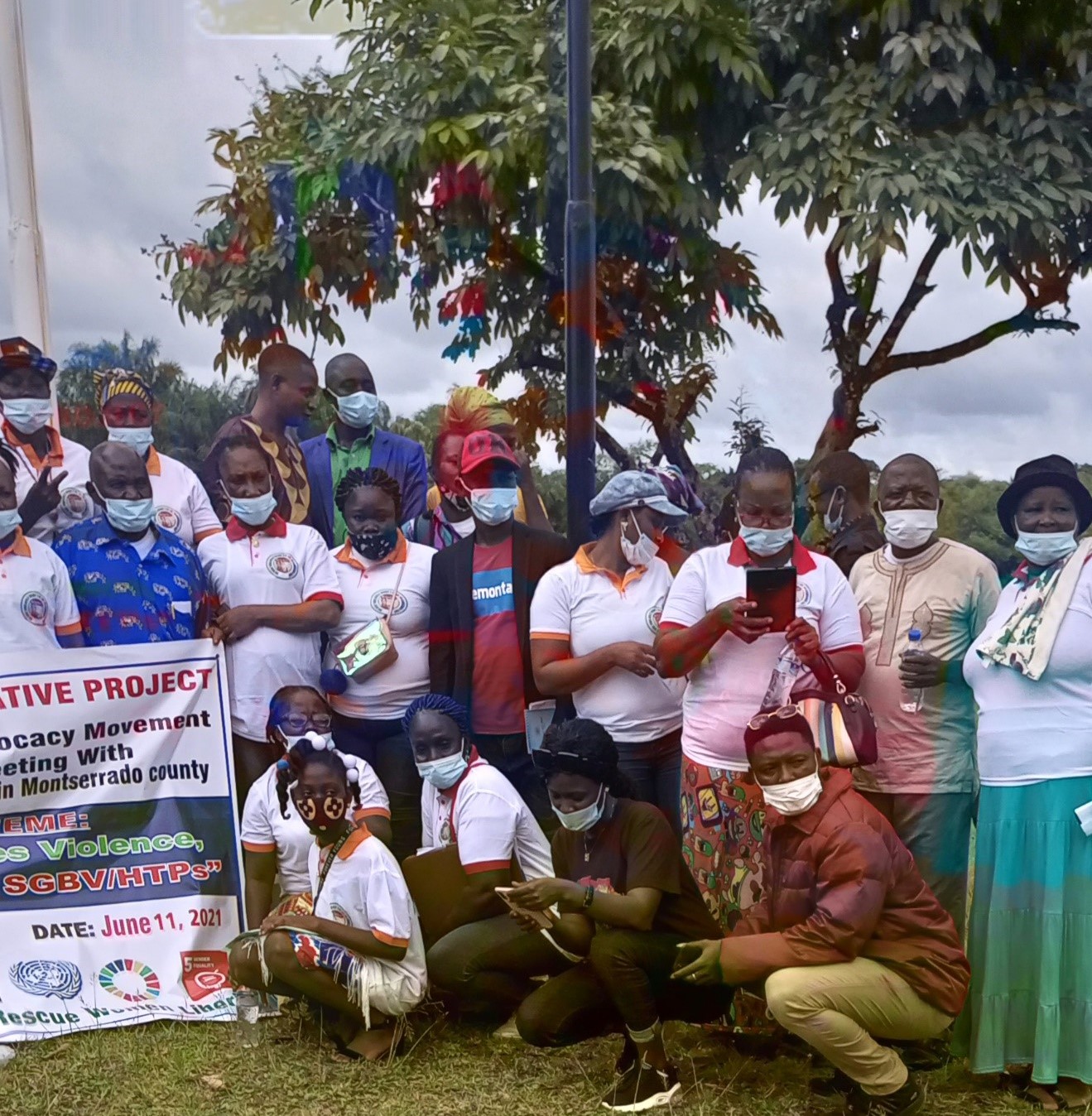By Garmah Never Lomo, garmahlomo@gmail.com
The local NGO Rescue Women Liberia, is seeking legislative amendment and repeal of some existing laws on the rights of women and girls.
In an attempt to push this agenda further, it recently held a day’s dialogue to petition the Legislature to review, amend or repeal some existing domestic laws in order to ensure social justice and equality.
The one day meeting with stakeholders held in Bentol, Montserrado county over the weekend, is part of the spotlight initiative program undertaken by the European Union and United Nations organized by the Joint District Women Advocacy Movement to End SGVB and harmful traditional practices.
Reading the petition on behalf of Rescue Women Liberia, student Margaret G. Karteh said: “We the Joint Districts Women Advocacy Movement of Montserrado county, draw the attention of your Honorable House of Senate to the serious inconveniences, ill-treatment, marginalizing and sufferings of women and girls of Liberia due to the in which the Government of Liberia is implementing specific affirmative actions on women and girls’ peace and security, women political parties representation, land and property ownership and domestic violence.”.

The petition further said that “In as much as the Government of Liberia signed and ratified the Universal Declaration of Human Rights, UN convention on the elimination of all forms of discrimination against women (CEDAW) Convention on rights of children”.
AU, other international protocols
The petition also said that the AU protocol on women and children, the African charter on Democracy, election and governance (ACDEG), the UN 1325 (SCR) resolutions on women peace and security on the rights of women in Africa (The Maputo Protocol), the ECOWAS protocol on demonstration and Good governance (PDGG) the Supplementary act relating to equality of rights between women and men of sustainable development in ECOWAS’ gender and election strategies framework and the formulation of the National Gender policy of 2009 by the government of Liberia.
The petitioner also requests the House of Legislature to urge the government of Liberia to take the necessary actions to protect, promote and strengthen women’s political participation and representation at all levels of political governance.
It also called for the strengthening of democracy and the rule of law to promote gender quality and ensure women peace and security including property ownership and inheritance rights.
Those attending the one day dialogue also want Government to increase the term of the rape court and the number of presiding judges in order to ensure speedy trial.
Budgetary & logistical support
Additionally, they also want budgetary and logistical support including motorbikes for the Women and Children Protection Section of the Liberia National Police.
They are at the same time calling for the expansion of depots in rural areas to accelerate the speedy processing of domestic and rape related cases.
They also called for the establishing of hotlines “by the Ministry of Gender, Women and Children Social Protection for national actors and stakeholders for effective coordination and information sharing”.
“That the government of Liberia through the Internal Affairs ensure more education to the laws especially local chiefs and traditional leaders and to amend the Education law to ensure that SGBV and HTPs policies should be introduced in schools as part of academic curriculum”, the petition continued.
It is also recommended that the drug law be amended and strengthened to make the crime non-billable “and the inheritance law (Devolution of estates and establish rights of inheritance for spouses of both statutory and customary marriages) should be repealed to ensure equity in property ownership for the husband and wife or the widower and the widow including harsher penalties for would be violators”.
Speaking at the petition ceremony, the Executive Director of Rescue Women Liberia Madam Lauretta George said the issue of eliminating SGBV and harmful traditional practices (HTPs) needs serious coordination adding that community dwellers alone can’t do all and it needs the concerted involvement of Government, CSOs and relevant stakeholders.
She told the gathering that while it is true that drug is not the root cause of the increase in rape cases, it is one of the contributing factors seriously destroying our today’s youths.
Madam George said the police are doing their best in charging and sending to court alleged rapists in the midst of little budgetary allotment.
She has at the same time reiterated calls to increase the budget of the LNP; specifically the Women, Children and Social Protection Section.
Courts vital role
The women’s rights group also recognized the vital role of the courts, saying they were doing their best but that there is need to step up their monitoring because most often a convicts are released unknown to the court before their sentences are fully served.
For her part, Bentol City Mayoress Martha K. Woheel personally recommended that rape convicts be castrated.
She then called on women candidates to support women candidates during electioneering periods instead of of men, who always take women issues lightly.
Liberians, she noted are good at making laws but poor at implementing them.
Commenting on HTPs, she said they are not the only harmful practices, identifying others as such societies as the UBF, Masonic Craft and other societies and others.
The one day stakeholders’ dialogue was attended by representatives from the police, Bureau of Correction, officers, school administrators, CSOs, among others.
The offices of various senators among others, were also represented.

